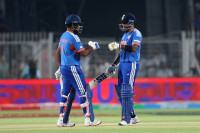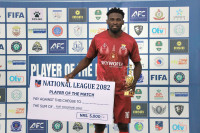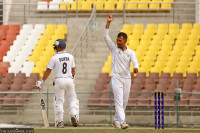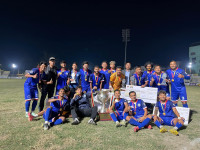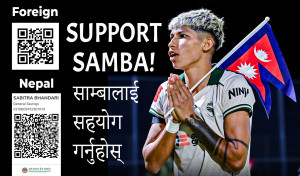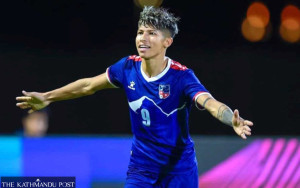Sports
Learning to compete with purpose
Matches against Hong Kong and Laos are not just markers of where we stand—they are compasses pointing to where we must go.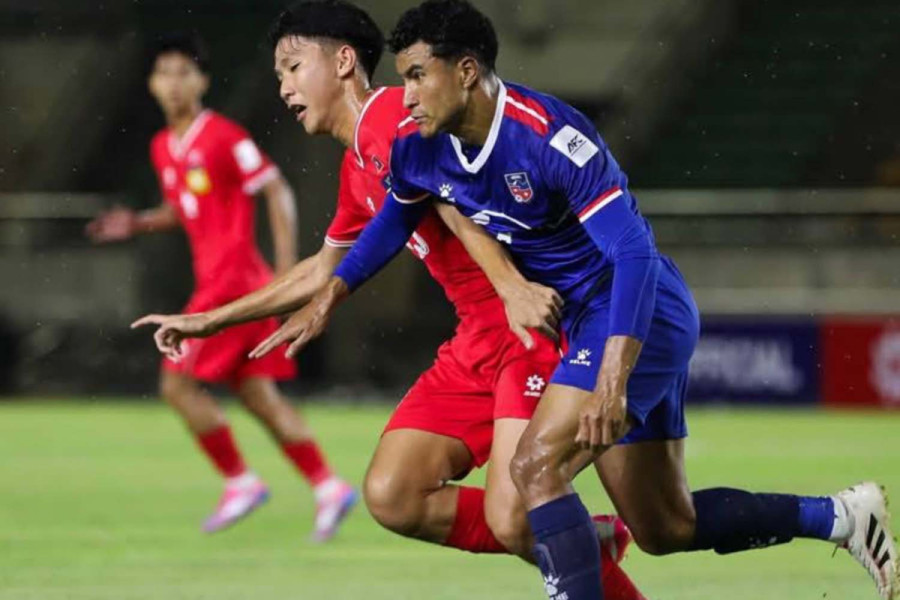
Matt Ross
In the span of a few days, the Nepal national team faced two very different footballing challenges. Against Hong Kong, we played a side with the experience, structure, and speed to exploit any lapse in concentration. Against Laos, we encountered a tenacious opponent, more evenly matched in physicality, but still tactically mature.
Hong Kong expected to beat Nepal, while Nepal expected to beat Laos. These dangerous expectations are based on old stereotypes, a lack of research and a misunderstanding of human psychology. As underdogs, Nepal can fight, be aggressive, and do the unexpected.
Meanwhile, as we improve tactically, can we meet the psychological challenge of playing expansive football—and winning—when it’s expected?
Football in Nepal is often judged through a binary lens: a win brings hope; a loss invites despair. However, for teams in the phase of development and transformation, this simplicity does little justice.
Our performance against Hong Kong may have ended goalless, but within the match were moments of tactical courage. Players held their lines under pressure, attempted to build from the back, and—most critically—fought to stay connected as a unit even when the game tilted away from them.
Against Laos, we improved in control and rhythm after a disastrous first half. We created chances, maintained better field balance, and managed transitions more deliberately. But again, the final touch, the small decision in the final third, eluded us. That is not for lack of effort.
It is the inevitable outcome of a team still growing, not only in physical terms, but in football intelligence and emotional resilience. My first task as the coach was to build a team that could stop the opponent from scoring. Against Singapore and Hong Kong, we achieved that. Our 0-2 result against Malaysia now looks more impressive, especially after Vietnam’s recent 4-0 loss to the same side.
The next phase of our development is to possess the ball more effectively. This is a long and difficult process for a traditionally counterattacking team. There were pleasing signs during the second half against Laos, but we fell well short of our standards and expectations.
The truth is, international football doesn’t wait for anyone. Nations with long-term planning, investment in youth structures, and competitive domestic leagues are constantly evolving. In contrast, countries like Nepal—where football still fights for space, resources, and clarity—must work doubly hard to stay in the race.
And yet, despite the challenges, there is something unmistakable in this group: a willingness to listen, to adapt, to shoulder responsibility. These are not intangible qualities. They are the seeds of culture. They are what transform hopeful sides into competitive teams.
The question now is whether we, as a footballing nation, are prepared to match the players’ ambition with real structural support. That means a consistent curriculum across youth academies. It means modernising coaching education, integrating sports science, and investing in training environments that mirror the realities of international football.
The matches and results against Hong Kong and Laos are not just markers of where we stand—they are compasses pointing to where we must go. Results matter. But so does identity. So does the process. We are not here to merely react to outcomes. We are here to shape them.
And shaping them means being bold enough to take the longer route—the one with deeper roots, firmer foundations, and a vision that outlasts a single tournament cycle. If we hold our nerve, stay committed to purposeful development, and bring the right people along, Nepal can be more than a proud competitor. It can be a football nation with staying power.




 9.7°C Kathmandu
9.7°C Kathmandu
